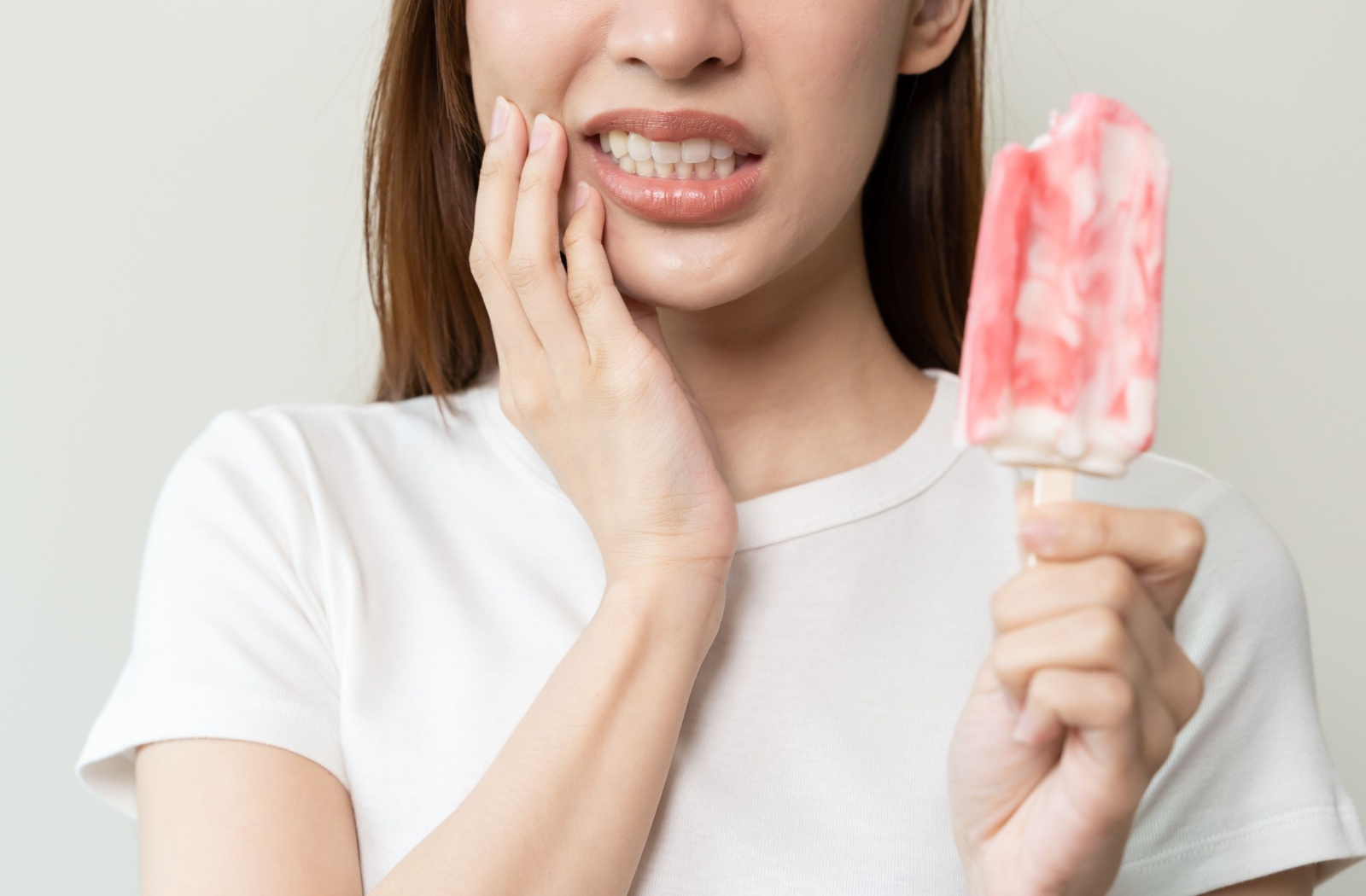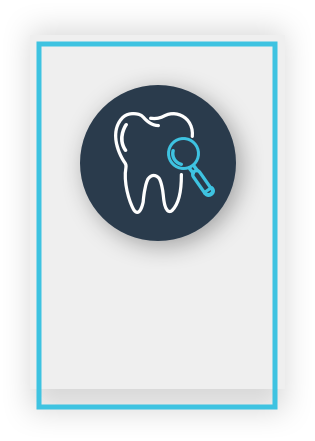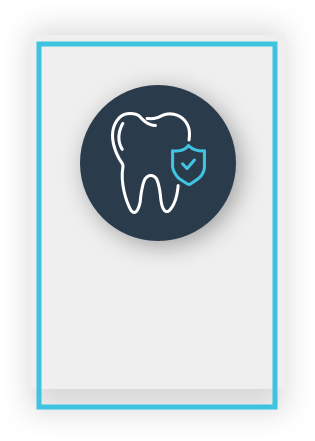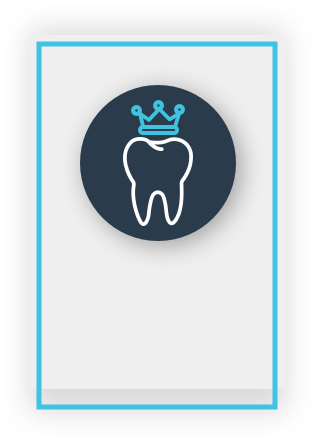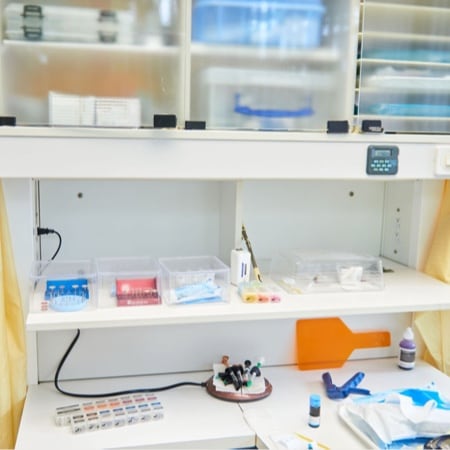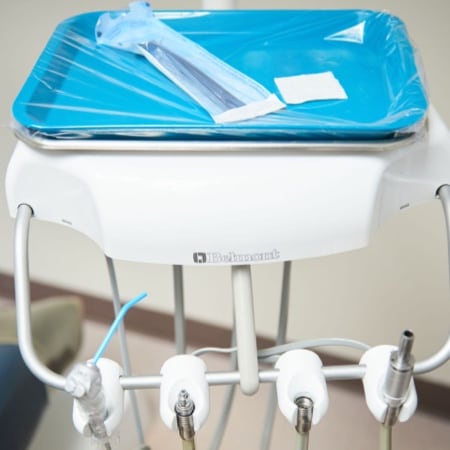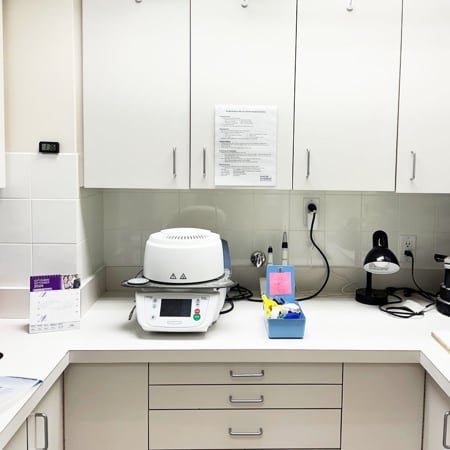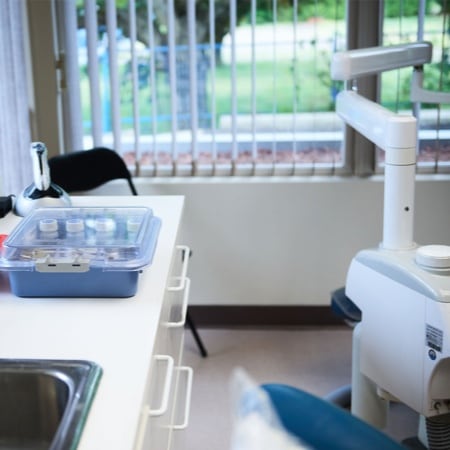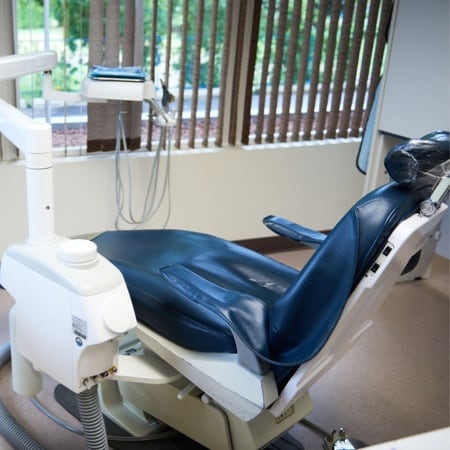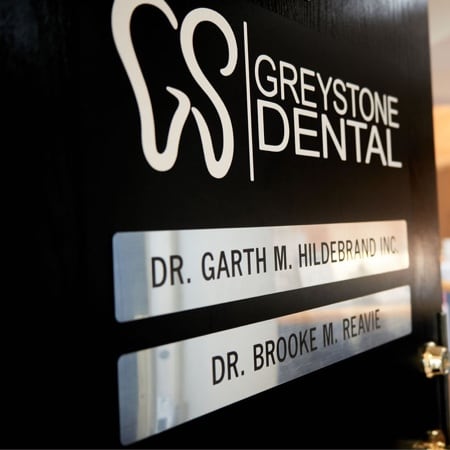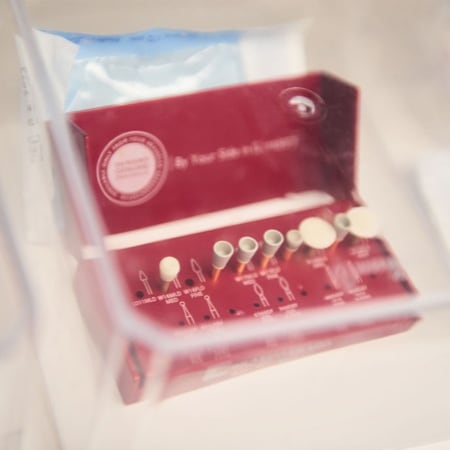At Greystone Dental, we understand how frustrating and uncomfortable tooth sensitivity can be, especially when it seems to come out of nowhere.
If you’ve been wincing while sipping your morning coffee or avoiding ice cream altogether, you’re not alone. Sudden tooth sensitivity is a common issue, and it can happen to anyone.
7 of the most common causes of tooth sensitivity include:
- Tooth enamel erosion
- Gum recession
- Tooth decay or cavities
- Recent dental work
- Cracked or damaged teeth
- Overuse of whitening products
- Sinus issues
Let’s explore each of these causes and what you can do to find relief.
- Tooth Enamel Erosion
Tooth enamel is the hard outer layer that protects your teeth. While durable, it can wear down over time, exposing the sensitive dentin underneath. Common culprits include acidic foods and drinks like citrus fruits, sodas, and even certain sports drinks. Grinding your teeth (a condition known as bruxism) can also wear down enamel, leading to sensitivity.
What Can Help?
Switch to a toothpaste designed for sensitive teeth, and consider avoiding overly acidic foods. If you suspect bruxism, a custom night guard can protect your teeth while you sleep.
- Gum Recession
Your gums play a vital role in protecting the roots of your teeth. When gums recede, whether due to gum disease, aggressive brushing, or aging, the exposed roots can lead to sudden sensitivity. Unlike enamel, the roots of your teeth aren’t covered by a protective layer, making them more vulnerable to temperature changes.
What Can Help?
Using a soft-bristled toothbrush and gentle brushing techniques can help prevent further recession. If gum disease is the cause, a visit to your dentist for a professional cleaning or treatment may be necessary.
- Tooth Decay or Cavities
Tooth sensitivity can be one of the first signs of a cavity. When decay eats through your enamel, it can expose the underlying dentin, triggering discomfort, especially when eating or drinking something hot, cold, or sweet.
What Can Help?
Early detection is key. Regular dental check-ups can catch cavities before they worsen. If you’re already experiencing sensitivity, you can book an appointment so we can assess the issue and recommend treatment.
- Recent Dental Work
Have you had a filling, crown, or whitening treatment recently? It’s not uncommon to experience temporary sensitivity following dental procedures. This occurs because your teeth and gums are adjusting to the changes, and the nerve endings might be more reactive temporarily.
What Can Help?
This type of sensitivity usually resolves on its own after a few days to a couple of weeks. In the meantime, avoid extremely hot or cold foods and stick to gentle oral hygiene practices. If the sensitivity persists, we’re here to help.
- Cracked or Damaged Teeth
A cracked tooth or filling can expose the inner layers of the tooth, including the sensitive pulp. This type of sensitivity is often sharp and localized, occurring when biting or chewing.
What Can Help?
Cracked teeth can lead to more serious problems if left untreated, so it’s essential to see your dentist right away. We can assess the damage to determine a course of action, which may include bonding, a crown, or other restorative treatments.
- Overuse of Whitening Products
While everyone loves a bright smile, overusing whitening products can sometimes lead to sensitivity. Whitening agents can irritate the tooth’s enamel and gums, especially when used too frequently or incorrectly.
What Can Help?
If you’re experiencing sensitivity after whitening, give your teeth a break and use a desensitizing toothpaste. When you’re ready to whiten again, consider consulting with us at Greystone Dental. We can guide you on safe options that minimize sensitivity.
- Sinus Issues
Believe it or not, sinus problems can cause tooth sensitivity. When your sinuses are inflamed or congested, the pressure can make your upper teeth feel sensitive, especially when chewing or biting.
What Can Help?
If your sensitivity is accompanied by sinus-related symptoms like nasal congestion or facial pressure, treating the sinus issue often resolves the tooth sensitivity. If the problem persists, let us take a closer look to rule out any dental causes.
Finding Comfort at Greystone Dental
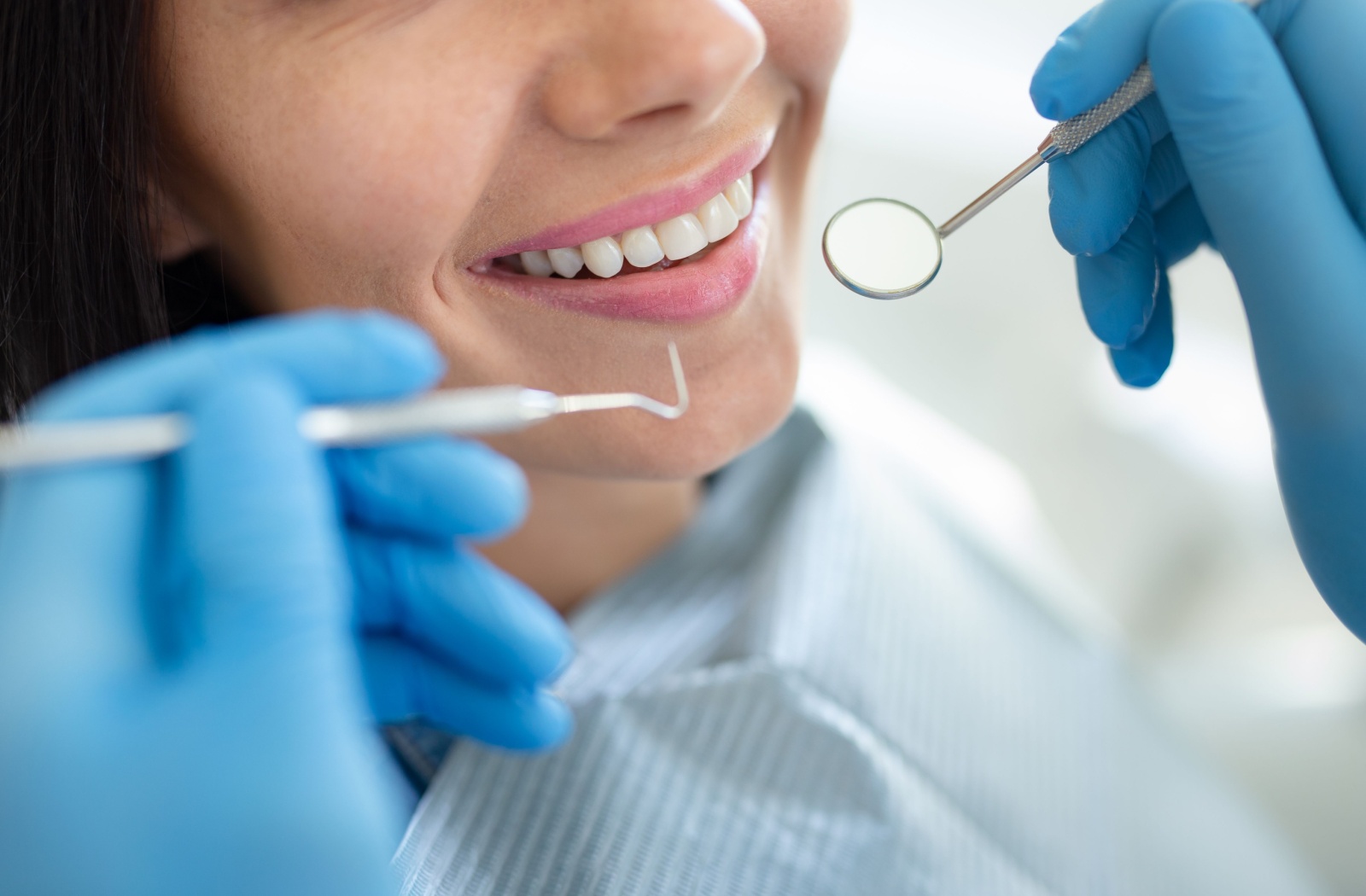
Tooth sensitivity doesn’t have to disrupt your daily life. At Greystone Dental, we’re dedicated to helping you understand the root cause of your discomfort and finding a solution that works for you. Whether it’s a simple adjustment to your oral care routine or a more in-depth treatment plan, our team is here to provide the care and guidance you need.
Remember, sudden tooth sensitivity is your body’s way of telling you something might need attention. Don’t ignore the signs—schedule a visit with our warm and welcoming dental team. Together, we’ll help you get back to enjoying your favourite foods and beverages without the discomfort.
If you’re experiencing tooth sensitivity or have questions about your dental health, contact us today. Greystone Dental in Chilliwack is here to support your family’s smiles, one gentle and caring appointment at a time.


